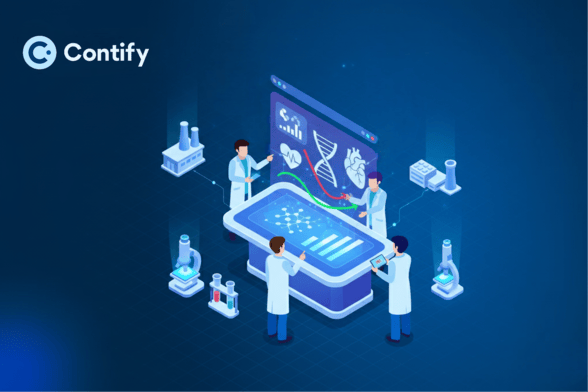Introduction
The healthcare industry in 2025 is standing at an inflection point. With rising patient expectations, digital-first care models, and supply chain volatility, decision-making has never been more complex. This is where competitive intelligence (CI) steps in, not just as a data exercise, but as a strategic capability helping healthcare leaders stay ahead of market shifts, anticipate risks, and shape future-ready growth strategies.
In this blog, we explore how competitive intelligence is transforming healthcare in 2025, covering its role in patient care, market positioning, digital innovation, and operational resilience.
The evolving landscape of healthcare in 2025
Healthcare today is no longer defined by hospital walls. Virtual care, precision medicine, AI-driven diagnostics, and integrated care ecosystems are reshaping how value is delivered.
- Patients act like consumers demanding transparency, affordability, and personalized experiences.
- Technology players and startups are entering healthcare, intensifying competition for traditional providers.
- Regulatory changes and pricing pressures demand sharper foresight and scenario planning.
For executives, this means decisions cannot rely on intuition alone. Market & competitive intelligence provides the lens to see what’s next, before it arrives.
What Is competitive intelligence in healthcare?
In healthcare, CI refers to systematically gathering, analyzing, and applying market signals from competitors, regulations, innovations, suppliers, and patient behavior to guide decision-making. Unlike market research that looks at the past, CI is forward-looking, helping leaders anticipate and act.
CI touches multiple dimensions:
- Product strategy: Understanding how new drugs, devices, or therapies compare in efficacy and adoption.
- Provider networks: Benchmarking partnerships, alliances, and digital care ecosystems.
- Patient experience: Tracking sentiment, satisfaction, and expectations shaping care delivery.
- Regulatory landscape: Anticipating global compliance shifts before they disrupt operations.
Why 2025 is a turning point for healthcare?
The timing is critical. Several forces are converging:
- AI-powered disruption: From predictive diagnostics to generative AI in research, competition is now about digital intelligence.
- Value-based care: Payment models are shifting from fee-for-service to patient outcomes, requiring more innovative cost-control strategies.
- Global competition: Cross-border care delivery, medical tourism, and global pharma supply chains add complexity.
- Talent and workforce shortages: Hospitals and life sciences firms face challenges in attracting skilled talent, making efficiency a differentiator.
Competitive intelligence enables healthcare leaders to turn these disruptions into opportunities.
How CI shapes healthcare strategy?
1. Product & Innovation Roadmaps
Pharma and medtech companies rely on CI to forecast competitor launches, R&D pipelines, and potential FDA approvals. This allows proactive positioning instead of reactive catch-up.
2. Supplier & Supply Chain Resilience
CI uncovers vulnerabilities in global supply chains, such as raw material shortages or geopolitical risks, allowing healthcare firms to diversify suppliers and ensure continuity.
3. Patient-Centric Care Models
By monitoring patient sentiment, telehealth adoption, and insurance trends, CI helps providers design services that align with evolving expectations.
4. M&A and Partnerships
From hospital mergers to digital health alliances, CI provides the intelligence needed to evaluate market entry points, assess synergies, and negotiate from a position of strength.
5. Regulatory Agility
Healthcare leaders can track upcoming policy reforms (pricing controls, data privacy, or reimbursement frameworks) and prepare compliance strategies well in advance.
The role of AI in healthcare competitive intelligence
AI is amplifying CI in three critical ways:
- Signal detection at scale: AI scans vast datasets, clinical trials, patents, and research papers to identify weak signals of disruption.
- Predictive foresight: Machine learning models forecast competitive moves, patient demand, and policy outcomes.
- Faster decision cycles: Generative AI helps distill complex intelligence into concise insights for leadership teams.
Instead of replacing human analysts, AI makes them more strategic, freeing them to focus on interpretation and action.
CI benefits for winning strategy teams
Organizations that embed Competitive Intelligence into their strategy workflows see measurable gains:
- Faster decisions, with portfolio calls made weeks earlier by spotting signals first.
- Smarter investments with licensing and M&A strategies informed by continuous global tracking.
- Stronger execution with Market Access, R&D, and Strategy aligned on the same validated insights.
A Global Pharma firm reduced manual scanning time by nearly half after embedding a CI platform into its workflows, freeing analysts to focus on insights instead of collection.
Future outlook: Intelligence as a core Ccapability
By 2025 and beyond, CI will no longer be a “support function” but a core capability embedded into every healthcare decision. The organizations that thrive will be those that:
- Use intelligence to predict, not just respond to, market shifts.
- Blend human expertise with AI for sharper foresight.
- Build cultures that act on intelligence, not just collect it.
Healthcare leaders who invest in CI today are effectively future-proofing their organizations for the decade ahead.
FAQs
What is competitive intelligence in healthcare?
Competitive intelligence in healthcare is the systematic process of gathering and analyzing information about competitors, patients, regulators, and market forces to guide strategy.
How does CI help in patient care?
By tracking patient needs, satisfaction, and technology adoption, CI enables more personalized and effective care delivery models.
What role does AI play in healthcare CI?
AI accelerates data collection and analysis, providing real-time insights and predictive foresight into market shifts and competitor actions.
Why is 2025 a turning point for healthcare strategy?
Due to AI disruption, new regulations, value-based care models, and heightened global competition, organizations are required to make smarter, intelligence-driven decisions.



